第26章 LETTER 4(4)
In all other cases,there is less reason still to do so;for when histories and historical memorials abound,even those that are false serve to the discovery of the truth.Inspired by different passions,and contrived for opposite purposes,they contradict;and contradicting,they convict one another.Criticism separates the ore from the dross,and extracts from various authors a series of true history,which could not have been found entire in any one of them,and will command our assent,when it is formed with judgment,and represented with candor.If this may be done,as it has been done sometimes,with the help of authors who wrote on purpose to deceive;how much more easily,and more effectually may it be done,with the help of those who paid a greater regard to truth?In a multitude of writers there will be always some,either incapable of gross prevarication from the fear of being discovered,and of acquiring infamy whilst they seek for fame;or else attached to truth upon a nobler and surer principle.It is certain that these,even the last of them,are fallible.Bribed by some passion or other,the former may venture now and then to propagate a falsehood,or to disguise a truth;like the painter that drew in profile,as Lucian says,the picture of a prince that had but one eye.Montagne objects to the memorials of Du Bellay,that though the gross of the facts be truly related,yet these authors turned every thing they mentioned to the advantage of their master,and mentioned nothing which could not be so turned.The old fellow's words are worth quoting."De contourner le jugement des évenemens souvent contre raison ànotre avantage,et diobmetre tout ce quiil y a de chatouilleux en la vie de leur maistre,ils en font mestier."These,and such as these,deviate occasionally and voluntarily from truth;but even they who are attached to it the most religiously may slide sometimes into involuntary error.In matters of history we prefer very justly cotemporary authority;and yet cotemporary authors are the most liable to be warped from the straight rule of truth,in writing on subjects which have affected them strongly,"et quorum pars magna fuerunt."I am so persuaded of this from what I have felt in myself,and observed in others,that if life and health enough fall to my share,and I am able to finish what I meditate,a kind of history,from the late queen's accession to the throne,to the peace of Utrecht,there will be no materials that I shall examine more scrupulously and severely,than those of the time when the events to be spoken of were in transaction.
But though the writers of these two sorts,both of whom pay as much regard to truth as the various infirmities of our nature admit,are fallible;yet this fallibility will not be sufficient to give color to Pyrrhonism.Where their sincerity as to fact is doubtful,we strike out truth by the confrontation of different accounts:as we strike out sparks of fire by the collision of flints and steel.Where their judgments are suspicious of partiality,we may judge for ourselves;or adopt their judgments,after weighing them with certain grains of allowance.A little natural sagacity will proportion these grains according to the particular circumstances of the authors,or their general characters;for even these influence.Thus Montagne pretends,but he exaggerates a little,that Guicciardin no where ascribes any one action to a virtuous,but every one to a vicious principle.Something like this has been reproached to Tacitus:and,notwithstanding all the sprightly loose observations of Montagne in one of his essays,where he labors to prove the contrary,read Plutarch's comparisons in what languages you please,I am of Bodin's mind,you will perceive they were made by a Greek.In short,my lord,the favorable opportunities of corrupting history have been often interrupted,and are now over in so many countries,that truth penetrates even into those where lying continues still to be part of the policy ecclesiastical and civil;or where,to say the best we can say,truth is never suffered to appear,till she has passed through hands,out of which she seldom returns entire and undefiled.
But it is time I should conclude this head,under which I have touched some of those reasons that show the folly of endeavoring to establish universal Pyrrhonism in matters of history,because there are few histories without some lies,and none without some mistakes;and that prove the body of history which we possess,since ancient memorials have been so critically examined,and modern memorials have been so multiplied,to contain in it such a probable series of events,easily distinguishable from the improbable,as force the assent of every man who is in his senses,and are,therefore,sufficient to answer all the purposes of the study of history.I might have appealed,perhaps,without entering into the argument at all,to any man of candor,whether his doubts concerning the truth of history have hindered him from applying the examples he has met with in it,and from judging of the present,and sometimes of the future,by the past?Whether he has not been touched with reverence and admiration,at the virtue and wisdom of some men,and of some ages;and whether he has not felt indignation and contempt for others?